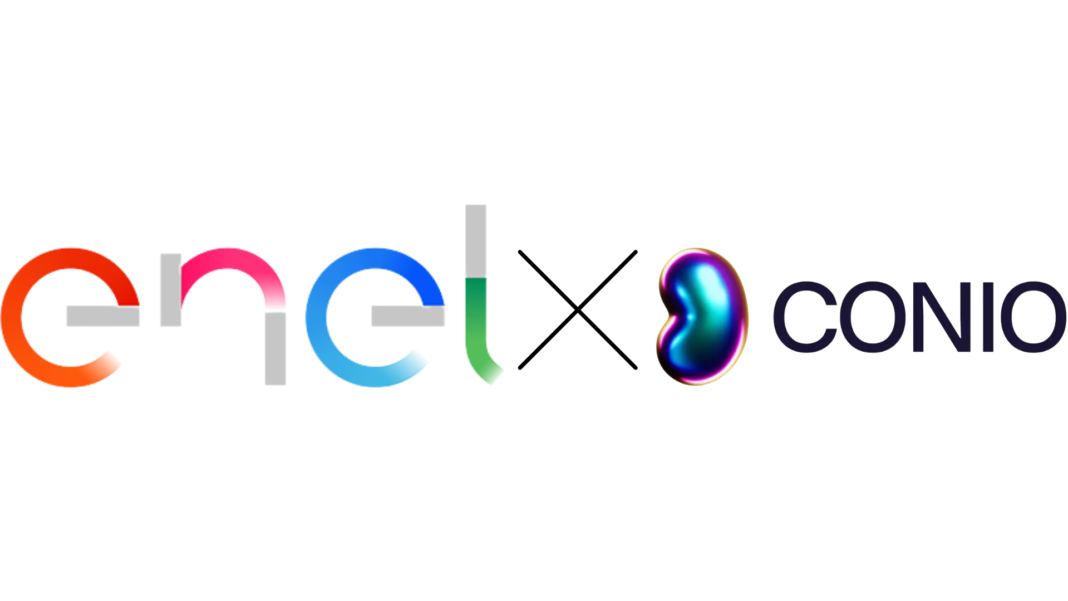Enel Group, Italy’s largest green energy company, has partnered with crypto wallet provider Conio to introduce an innovative solar panel tokenization product in Italy.
This collaboration marks a significant step toward integrating blockchain technology with renewable energy, allowing Italian residents to benefit from solar energy without the need for physical installation on their rooftops.
The tokenized solution will be powered by the Algorand blockchain, known for its speed and scalability.
A Revolutionary Way to Own Solar Power
The tokenization product allows individuals to purchase a fraction of solar panels that are part of Enel’s solar farms. This product enables Italian residents to offset their electricity bills by applying the energy generated from their owned fraction of solar panels directly to their utility bills.
The beauty of this model is that it removes the need for physical solar panel installations on private property, opening the door to solar energy for those living in apartments or urban areas without the means to install solar panels themselves.
According to Marc Vanlerberghe, Chief Marketing Officer of the Algorand Foundation, this partnership represents a unique use case for tokenization. “You can live in a high-rise and offset with partial ownership of a solar panel in a field someplace else,” Vanlerberghe explained.
This means that the barriers to adopting green energy solutions, such as space or home ownership, are removed, providing greater access to sustainable energy.
Enel Group’s Role and Management of Solar Panels
Under this partnership, Enel will be responsible for the management of the solar panels. Once purchased, Enel will oversee the installation, maintenance, and operation of the panels at their facilities, ensuring they generate energy that can be used by the fractional owners to reduce their electricity consumption.
By tokenizing these real-world assets (RWAs), Enel is creating a new avenue for energy consumers to participate in the green energy economy.
The tokenization process is made possible through Algorand’s blockchain technology, which ensures the transparent, secure, and efficient tracking of energy generation and consumption.
The blockchain also allows for fractional ownership, enabling individuals to invest in solar energy without needing large upfront capital.
A New Era for Tokenized Markets and Renewable Energy
Staci Warden, CEO of the Algorand Foundation, highlighted the significance of this development by pointing out that tokenized RWAs offer unprecedented flexibility. “There is just no end to the power of tokenized markets,” Warden said.
She emphasized that this new approach could democratize energy access, making it possible for anyone, regardless of location, to participate in sustainable energy production.
Tokenization opens up new opportunities for decentralized energy ownership, and this model may inspire similar projects worldwide.
Also Read: Italy Pulls Back Proposed Crypto Trading Tax From 42% To 28%, Details Inside
A Broader Movement in Italy’s Financial Landscape
The collaboration between Enel and Conio comes at a time when Italy is seeing increased interest in blockchain technology and cryptocurrencies.
In another significant development, Italy’s largest bank, Intesa Sanpaolo, made its first proprietary Bitcoin trade, investing 1 million euros ($1 million) in Bitcoin as part of a test.
Intesa Sanpaolo, which set up a digital asset trading desk in 2023, has begun handling cryptocurrency spot trades, signalling a growing institutional acceptance of digital assets in Italy.
The Enel-Conio partnership is a pioneering project that blends renewable energy with blockchain technology, creating a sustainable and innovative financial product for Italian residents.
By making solar energy more accessible and easier to manage through tokenization, this collaboration is setting a new precedent for how blockchain can be leveraged to drive positive environmental change and empower individuals to take control of their energy consumption.
Also Read: Bank of Italy Labels Bitcoin P2P Services as “Crime-As-A-Service” Amid Money Laundering Issues


